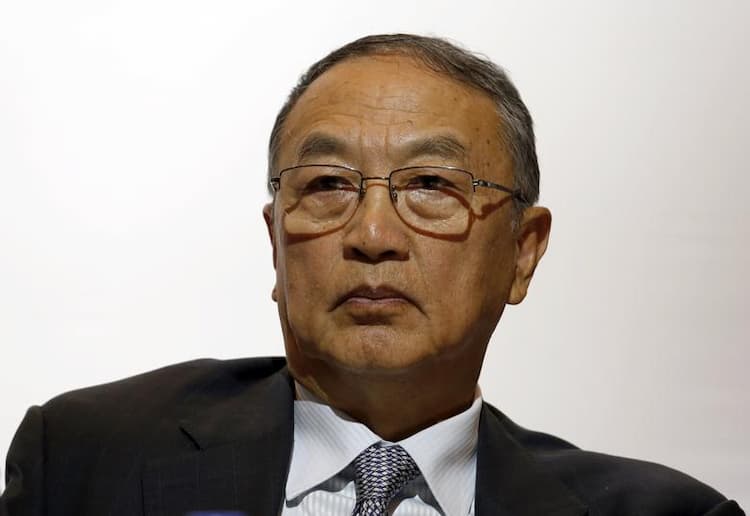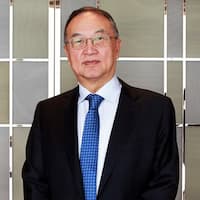Liu Chuanzhi Biography
Liu Chuanzhi is a Chinese entrepreneur and businessman known for being the founder of Lenovo, one of the world’s largest computer manufacturers. He is still one of the company’s leaders.
How old is Liu Chuanzhi? – Age
He is 78 years old as of 29 April 2022. He was born in Zhenjiang, China.
Liu Chuanzhi Family
He is the son of Liu Gushu and Jiang Xiuzhen. He has three siblings; Liu Chuanyang, Liu Chuanming, and Liu Chuanxin.
Is Liu Chuanzhi married? – Wife
He has been married to Gong Guoxing since 1969. She was the general manager of Lenovo’s computer department after graduating from Northwest Telecommunications Engineering College, now Xidian University.
Liu Chuanzhi Education
Liu applied to be a military pilot after graduating from high school in 1962 and passed all of the required exams. Despite his father’s revolutionary credentials, Liu was barred from military service because a relative had been labeled a rightist. Liu enrolled in the People’s Liberation Army Institute of Telecommunication Engineering, now known as Xidian University, in the autumn of the same year. Liu was assigned to study radar because he was deemed unsuitable for such sensitive subjects due to his political and social background. During his studies, Liu was introduced to computing.
Liu Chuanzhi Politics
Unlike many other Chinese business leaders, Liu has frequently expressed his views on political issues. Liu has criticized the tendency of others to remain silent. In an October 2012 interview with Caijing, he advocated for “elite selection” of political leaders. In December 2013, Liu expressed optimism about China’s economic reform.
Liu Chuanzhi Net Worth
He has an estimated net worth of $106 Million.

Liu Chuanzhi Lenovo
Tienan founded Lenovo in 1984 in Beijing with a group of ten other engineers with 200,000 yuan and a 20-square-yard office. In response to a lack of funding at the Chinese Academy of Sciences, he came up with the idea for Lenovo. Despite its rhetoric of market-oriented reform, the Chinese government was hesitant to relinquish economic control. Liu was concerned that micromanagement would cause his company to fail. The lack of familiarity with market-oriented business practices posed a challenge for Lenovo’s founders, who were all scientists and engineers.
Their first major transaction, an attempt to import televisions, was a failure. Lenovo quickly put money into developing a circuit board that would enable IBM PCs to process Chinese characters. Lenovo went public in 1994 after listing in Hong Kong and raising nearly $30 million. The proceeds of the offering were used to fund sales offices in Europe, North America, and Australia, as well as to expand and improve production and research and development and to increase working capital.
In 1997, Lenovo’s Hong Kong and Mainland China business units merged and issued a secondary offering. With Lenovo’s subsequent acquisition of IBM’s personal computing business, he became the first Chinese CEO to lead the takeover of a major American corporation. Liu claims that at first he acted “like a kind of dictator,” yelling a lot. Business ethics posed a significant challenge for Liu in establishing and growing Lenovo.
Liu Chuanzhi Joyvio
Joyvio is Legend Holdings’ investment vehicle in the food industry. Legend has put more than one billion yuan into Joyvio. Joyvio intends to pursue complete vertical integration, from farming to retailing. Blueberries were Joyvio’s first product. Its product line was expanded to include kiwifruit in November 2013. In honor of Liu Chuanzhi, the kiwifruit has been dubbed “Liu Kiwi.” Legend’s foray into food is the responsibility of Liu. Joyvio has acquired farms all over the world since 2011, including blueberry fields in Shandong and Chile, as well as kiwifruit plantations in Sichuan, Shaanxi, Henan, and Chile. By the end of 2013, the company intended to begin selling cherries and grapes from the United States, Australia, and Chile.
Joyvio used Legend’s experience in information technology to establish a tracking system to ensure the quality and safety of its products. Customers can scan codes on its packages to learn about the farm where the product was grown, who oversaw production, what tests were performed, and information about soil and water quality. In order to work effectively with small family farms and agricultural cooperatives, the company is also employing the OEM business model, which is common in the technology industry. Joyvio conducts training exercises with farmers to prepare them to deal with bad weather quickly and effectively. In late 2013, Joyvio entered the imported wine business.
Joyvio announced on March 30, 2014, that it had acquired a 60% stake in Hangzhou Longguan Tea Industrial Company for approximately 30 million yuan (US$4.83 million). Longguan was previously a fully state-owned enterprise governed by the Chinese Academy of Agricultural Sciences. Longguan is the home of Hangzhou’s famous Longjing tea. In 2012, the company’s sales totaled 32.45 million yuan. According to the annual report, the company has been growing at a rate of 40 to 50 percent per year. Joyvio is now in charge of Longguan on a daily basis. According to Liu Chuanzhi, his goal is to bring innovation and commercial methods to the tea industry. Joyvio, according to Liu, will invest in other well-known tea brands and related products.
